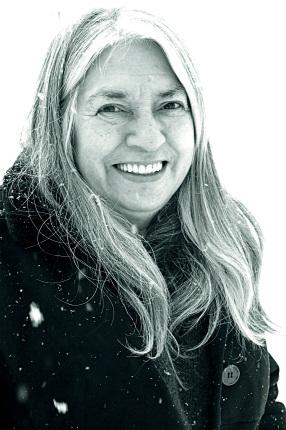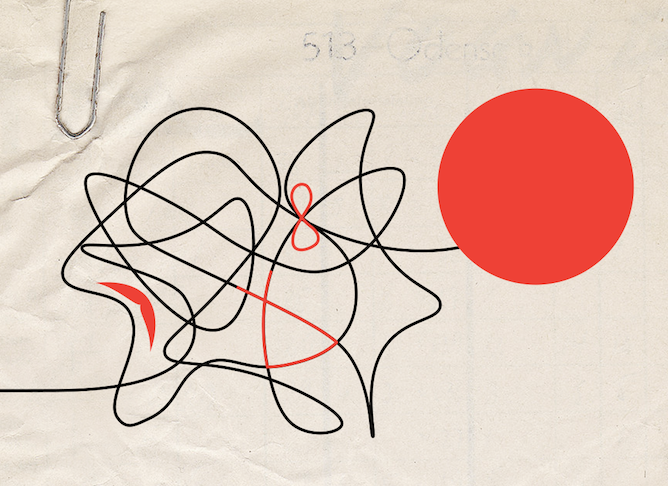
Lee Maracle (2 July 1950 - 11 November 2022)
Lee Maracle was a Stó:lō writer, cultural critic, and activist. She has published many novels, poems, an autobiography, and several books of creative nonfiction, which reflect on many of the complex and often controversial topics discussed in the talks she has delivered nationally and internationally. Throughout her career, she has been honoured with several awards and has been actively involved with numerous universities across Canada.
Maracle was born on 2 July 1950, in Vancouver, B.C., and is of Métis and Coast Salish ancestry. She grew up with her seven siblings in a relatively poor neighbourhood known as the “mud flats” in North Vancouver.[1] When she was five, her father left the family to find work in the North and was often gone for months at a time. As a single parent, Maracle’s mother struggled to make ends meet and foster in her children a sense of her culture, stories, and traditions. As a child, Maracle often accompanied her mother on visits to family members, prominent elders and intellectuals—experiences which instilled in her a sense of national pride, social conscience, fairness, and a deep respect for thinking.
Maracle attended local schools and, as a teenager, went to Argyle Secondary School in North Vancouver. She maintains, however, that she did not obtain her education from B.C.’s mainstream school system but from her elders and from lots of books and dictionaries. Although Maracle did not experience segregation the way residential school survivors did, she recalls having trouble fitting in with other students, and found herself both disgruntled and disillusioned in a school system replete with educators who continued to teach colonial—and, to varying degrees, racist—perspectives on literature, history, and Indigenous peoples.[2] Maracle struggled with school, not because she found it difficult but because she found it boring, useless, and socially ostracizing.
Maracle continued in B.C.’s public school system until 1966, when she dropped out and made her way to California as an itinerant farmworker. She spent the next few years travelling back and forth between California, Vancouver, Toronto, and the Canadian prairies, where she moved within hippie, Black Panther, Red Power, and other activist circles, dabbled in the writings of Frantz Fanon, Malcolm X, Mao, and Leon Trotsky, and began experimenting with stand-up comedy and film production in order to support herself financially. Her autobiography, Bobbi Lee: Indian Rebel (1975), is based largely on her experiences during this period. Although Maracle’s involvement with movements like the Native Alliance for Red Power (NARP) and the American Indian Movement (AIM) allowed her to develop a deeper understanding for colonialism, racism, gender, and class, it also inadvertently taught her about the politics of leadership and reform movements and the limits of revolutionary theories that had not significantly changed social conditions for Indigenous peoples in Canada. Maracle’s interest and participation in the Red Power movement gradually faded, in part because of its loss of momentum and direction, and in part because of government intervention and internal dissension over its organization.[3]
By the time Maracle had settled back in Vancouver, she enrolled at Simon Fraser University where she began to work on her autobiography, Bobbi Lee, under the guidance of her professor, Don Barnett, who edited and encouraged her to publish it.[4] However, like her contemporaries Maria Campbell and Jeannette Armstrong, who also began writing and publishing in the 1970s and ‘80s, Maracle found herself largely excluded from the Canadian Literature scene and fought hard to be included among her non-Indigenous counterparts. She often attended conferences, regardless of whether or not she was formally invited, sparked controversial discussions with her politically provocative comments, and challenged the conventions of the literary and publishing industry.[5] Thanks to her insistence on being heard—and to the groundswell of Indigenous writing in the ‘70s and ‘80s—Indigenous texts like Maracle’s became celebrated as more than “ethnographic reportage” in scholarly spheres and public conversations.
Initially, Maracle found herself somewhat surprised by, and unprepared for, the demands a career as a writer made on her. While she appreciated the recognition that she did get in literary circles, she found the authority her words suddenly carried and the expectations the public had of her at times difficult to bear.[6] But a decade later, she began publishing again and, as she stated in one interview, decided to become a serious writer in the late eighties (Kelly 73). In 1988, she wrote a collection of creative nonfiction essays, I Am Woman; in 1990, she came out with Oratory: Coming to Theory, as well as Sojourner’s Truth, a collection of stories that combine Indigenous oratory and literary devices; and in 1992, she wrote and published her first novel, Sundogs, which captures the struggles of a young First Nations family and the changes across Canada in the context of the Meech Lake Accord and the Oka standoff in 1990. Following that, Maracle published a number of novels, including Ravensong (1993), Daughters are Forever (2002), Will’s Garden (2002), and Celia’s Song (2014). She continued writing creative nonfiction, such as First Wives Club: Coast Salish Style (2010), which discusses gender, sexuality, child-rearing, and creative empowerment; Memory Serves: Oratories (2015), a collection of the essays Maracle wrote, delivered and performed over the past twenty years; and, most recently, My Conversations with Canadians (2017), a nonfiction book addressing her non-Indigenous audience that reflects on the necessity of decolonizing Canada. She has also published several poems, a number of which are featured in her poetry collections, Bent Box (2000) and Talking to the Diaspora (2015), and has collaborated on nearly two dozen critical anthologies.
Maracle has been honoured with the J.T. Stewart Voices of Change Award (2000), an American Book Award from the Before Columbus Foundation (2000) and an Honorary Doctor of Letters from St. Thomas University (2009). Her involvement at academic institutions has been equally remarkable: she worked closely with Jeannette Armstrong and was involved in the En’owkin International School of Writing in Penticton, B.C., which features Indigenous fine arts and Okanagan language programs; has worked at the Barrie Native Friendship Centre in Ontario; has performed and taught at the University of Toronto; and has held academic positions at the University of Waterloo, Western Washington University, and University of Guelph.
In Summer 2022, Maracle returned to the West Coast after living for years in Toronto, Ontario, to be closer to her family. On 11 November 2022, she passed away unexpectedly.
Selected Readings:
Maracle, Lee. Bent Box. Theytus Books, 2000.
———. Bobbi Lee: Indian Rebel. Recorded and Edited by Don Barnett and Rick Sterling, LSM Press, 1975.
———. Daughters are Forever. Polestar, 2002.
———. First Wives Club: Coast Salish Style, Short Stories. Theytus Books, 2010.
———. I Am Woman: A Native Perspective on Sociology and Feminism. Press Gang, 1996.
———. Memory Serves and Other Essays. Edited by Smaro Kamboureli, Newest Press, 2015.
———. My Conversations with Canadians. Book *hug, 2017.
———. Ravensong: A Novel. Press Gang, 1993.
———. Sojourner’s Truth and Other Stories. Press Gang, 1990.
———. Sundogs. Theytus Books, 1992.
———. Talking to the Diaspora. ARP Books, 2015.
———. Will’s Garden. Theytus Books, 2002.
Works Cited:
Maracle, Lee. Bobbi Lee: Indian Rebel. Recorded and Edited by Don Barnett and Rick Sterling, LSM Press, 1975.
———. I Am Woman: A Native Perspective on Sociology and Feminism. Press Gang, 1996.
———. “Looking Back at Bobbi Lee.” a/b: Auto/Biography Studies, vol. 31, issue 3, 2016, pp. 429-430.
———. My Conversations with Canadians. Book *hug, 2017.
Kelly, Jennifer. “Coming out of the House: A Conversation with Lee Maracle.” Ariel, vol. 25, no.1, 1994, pp.73-88.
Warley, Linda. “Reviewing Past and Future: Postcolonial Canadian Autobiography and Lee Maracle’s Bobbi Lee, Indian Rebel.” Essays on Canadian Writing, issue 60, 1996, pp. 59-77.
---
Lee Maracle entry by Lara Estlin. September 2018. Updated April 2019. Lara is a former SFU student who completed her English Honours project on Indigenous authors William Apess (Pequot) and George Copway (Anishinaabe). After completing her BA at SFU, she then completed her MA in the Department of English at UBC. She worked as a research assistant for The People and the Text from 2018-2020.
Entry edits by Margery Fee, April 2024. Margery Fee is Professor Emerita at UBC in the Department of English.
Updated by Eli Davidovici in April 2024. Eli completed his M.Mus in Jazz Performance at McGill University in June 2024.
Please contact Deanna Reder at dhr@sfu.ca with any comments or corrections.
Endnotes:
[1] The opening pages of Maracle’s autobiography, Bobbi Lee: Indian Rebel, portray, in more detail, the neighbourhood in which Maracle’s family lived. Although some of the events and names in her book are fictionalized, her description of the North Shore’s mud flats and its community members offers a vivid rendering of the type of atmosphere she grew up in until she was eleven.
[2] For more on Maracle’s views regarding Canada’s education system, see the following chapters in I Am Woman: chapter seven, “Black Robes,” on the history of residential schools and their effects on Maracle’s elders (pp. 62-70); chapter eight, “The 1950s,” on how the colonial education system persisted throughout the mid-twentieth century (pp. 71-78); chapters nine and ten, “Heartless Teachers” and “L’ilwat Child,” on the role and responsibility of educators as individuals perpetuating the existing racial biases and ideological goals of Canada’s education system (pp.79-88); and chapter eleven, “Education,” on how the current schooling system, as an “ideological processing plant,” might effectively be decolonized (pp. 89-92).
[3] For more information on the Red Power movement and Lee Maracle’s disillusionment with the AIM, see pp. 96-107 of I Am Woman.
[4] Initially, Maracle recorded Bobbi Lee as part of a course on oral life histories but wasn’t intending to publish it. She also disagreed with editor Don Barnett over a number of editorial changes he suggested, but was eventually persuaded to publish her autobiography and promote it on a book tour in 1976, at age 26. For more information on the context out of which Bobbi Lee arose, see Maracle’s reflection on the subject in “Looking Back at Bobbi Lee.” For more information on the differences between the different editions of Bobbi Lee, see Linda Warley’s “Reviewing Past and Future: Postcolonial Canadian Autobiography and Lee Maracle’s Bobbi Lee, Indian Rebel.”
[5] In 1988, Maracle asked to attend the Vancouver Writers Festival to launch I Am Woman but was denied an invitation. Maracle attended anyways, got up on stage, and read from her book to a horrified, but respectfully silent, audience. She also garnered quite a bit of attention at the Third International Feminist Book Fair in Montreal when she asked the feminist movement to “move over” and stop stealing the stories Indigenous women were entitled to tell. For more information on the latter controversy, see Maracle’s comments on the matter in chapter ten of My Conversations with Canadians, pp. 99-122.
[6] Maracle’s “Looking Back at Bobbi Lee” discusses her mixed feelings regarding the publication and reception of Bobbi Lee in more detail.

